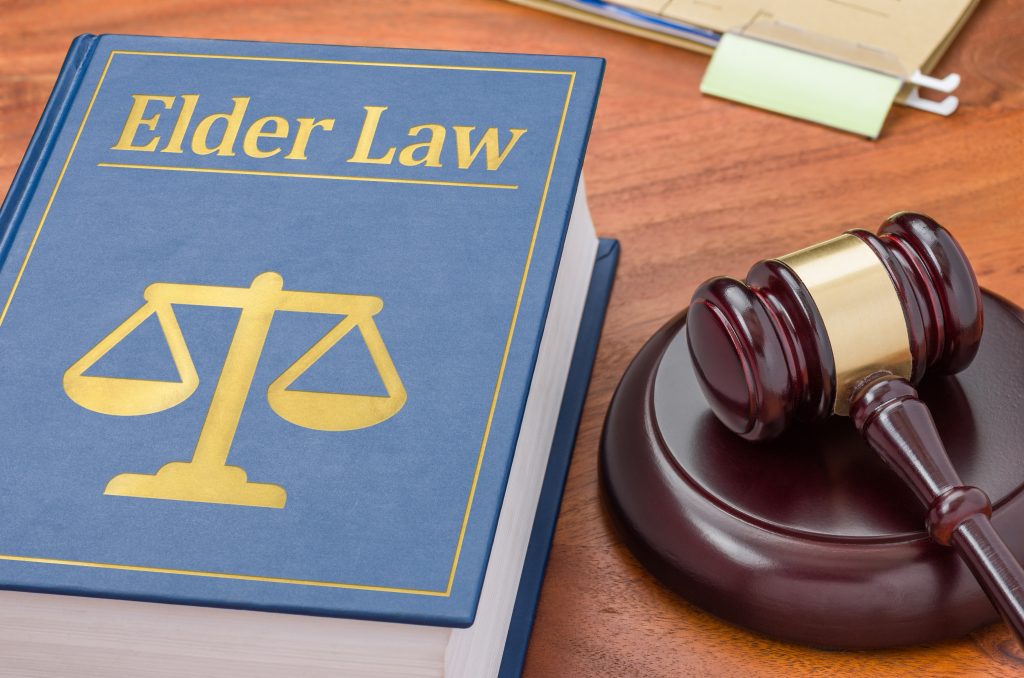05.23.2023 Written by: David T. Estle
When a loved one starts to experience difficulty in taking care of himself or herself—whether due to disability or aging—there are often concerns about having the legal authority to act for the person who needs additional assistance in his or her support, finances, or otherwise. Anticipating these issues is the main feature of incapacity planning. If there has been no advanced planning in the case of incapacity, or even if the person named in the incapacity documents needs more legal authority to help effectively, there is a court process to assist people with greater needs by putting them under a guardianship or conservatorship. However, being under a guardianship or conservatorship does not mean a person has lost control over his or her own life. Continue reading our blog to learn more about the responsibilities of guardianships and conservatorships.
People subject to guardianship or conservatorship (sometimes called “wards” or “protected persons,” respectively) are granted a list of rights under Minnesota law. These rights—including the rights to participate in their own healthcare decisions, to personal privacy, to have an attorney at any proceeding, and to generally still have control over their own lives—are guaranteed by the court. While the court ultimately enforces and protects these rights of the person subject to guardianship/conservatorship, as a practical matter, all stakeholders in the guardianship/conservatorship should know about the rights which they must respect.
Guardians or conservators of a person subject to a guardianship/conservatorship must additionally know about the duties associated with their role. Guardians have a duty to look after the person of the ward. They must provide for the person’s health and safety, ensuring that a person subject to guardianship has adequate food and shelter. Personal property is also under the purview of a guardian, requiring a guardian to take reasonable care of personal items, but even allowing the sale and removal of those items, as long as the person subject to guardianship is given notice and a chance to object. Being the overseer of personal well-being also carries with it the power to consent to or decline most medical care. Overall, the guardian must act in the best interest of the person. When guardians want help in determining the best interest of the person they are caring for, they can always seek the approval of the court for the chosen course of action.
Conservators have the responsibility to look after the protected person’s estate, or assets. Their responsibilities include paying for (and keeping detailed records of those expenses) the person’s support and financial maintenance. A conservator is tasked with paying the bills, writing checks, and maintaining financial accounts, all on behalf of the person subject to conservatorship and with that person’s assets. Necessarily, the court must oversee the conservator’s actions with an auditor’s eye view, requiring a yearly accounting of the assets, income, and expenses. Conservators use an online program to make these annual reports. The conservator needs to be comfortable with handling financial matters, including real estate. The conservator serves in the protected person’s best interest, but with regard to the kinds of needs, services, and purchases that need to be made for the benefit of the protected person. Where a person subject to guardianship has only income and no financial assets, the guardian collects income and pays the bills instead of having an appointed conservator.
The combination of respecting rights while fulfilling responsibilities can make for a difficult job. But guardians and conservators are often willing to go above and beyond for their loved ones who need their help. This does not mean that there is no conflict, or that the guardian or conservator will always get it right. The appointed guardian or conservator is often a spouse, child, sibling, or other close family relative. Indeed, the guardian and conservator can end up being the same person in many instances. Guardians and conservators straddle a line between deeply caring for the person subject to guardianship/conservatorship and having new legal responsibilities to help that person.
Guardianships and conservatorships add a new dimension to already complex familial relationships. Although the guardian or conservator may have been previously tapped for that role in an incapacity planning document, there are suddenly more responsibilities and accompanying duties. Even where the person subject to guardianship or conservatorship completely trusts and loves the person who is now guardian or conservator, the situation now requires interacting with that loved one in a court-monitored process that is regimented and particular.
Take, for example, a daughter who becomes the court-appointed guardian and conservator of her father. The daughter is an accountant, understanding all of her responsibilities with the capability to fulfill her role as conservator ably. When the daughter decides to approach her father about decluttering and organizing the house because she thinks it is unsafe as is, her father objects, claiming that he wants to keep all of his personal effects. The father is unhappy because he feels his desire to keep his house the way he wants is being questioned. The daughter is worried because she knows she has a legal duty to be proactive in protecting her father’s safety and well-being. She also needs to ensure that disposing of whatever property is sold is favorable to the estate.
The father has a right to be notified of his property being disposed of; the daughter must inform her father of her decision by mailing a written notice to her father listing the property that she intends to get rid of. The father may object within ten days of the postmark date and then demand court review of the daughter’s plans to remove his property. The objection must be officially served on the daughter. If her father objects, the court will have to calendar a hearing date to consider the daughter’s plan and whether it is in the best interest of her father. What started as a disagreement has become a legal quagmire.
The father understandably does not want to lose control over his life. The daughter loves her father dearly, but feels she is being more than reasonable in wanting to get rid of items she sees no value in and could create a safety issue for her father. There is a push-and-pull between the rights of the person subject to guardianship/conservatorship and the responsibilities of the guardian/conservator. Are these two headed to the courthouse all because of a difference in opinion about the father’s clutter? How much more difficult would it be if the daughter was not a financial professional with career experience and knowledge in these topics?
The possibility for these types of conflicts is real and anxiety-producing. Seeking representation from elder law attorneys can help you navigate, and even anticipate these scenarios in guardianships and conservatorships, potentially resolving disagreements before they get to the expense and publicity of a courtroom. Our attorneys can help you if you are under guardianship and/or conservatorship, advocating for your rights. We also set up guardianships and conservatorships for those seeking to take care of their family member or loved one, assisting proposed guardians or conservators in accepting their roles with the courts, and then advising the court-appointed guardians and conservators on how best to fulfill their obligations.
Come see an elder law attorney at Henningson & Snoxell to discuss your guardianship/conservatorship matter. Contact us to see how we can provide valuable representation that aims to achieve your best outcome.
Read More











 Subscribe
Subscribe Subscribe
Subscribe
